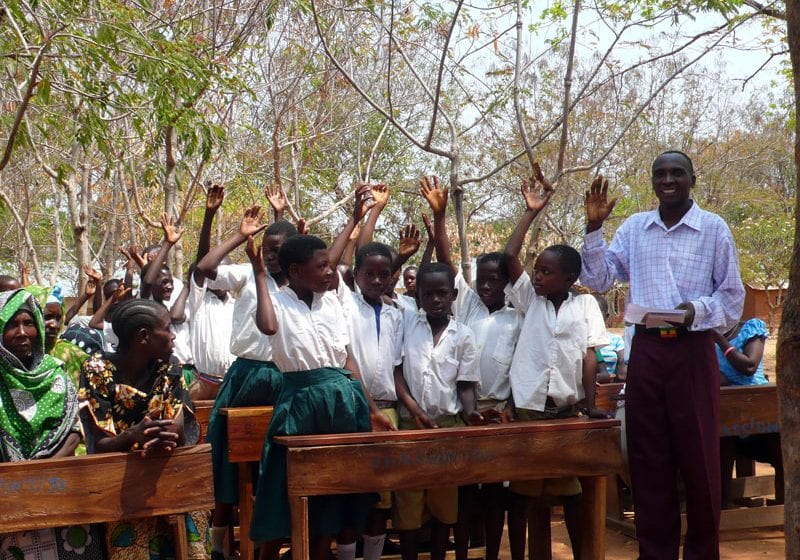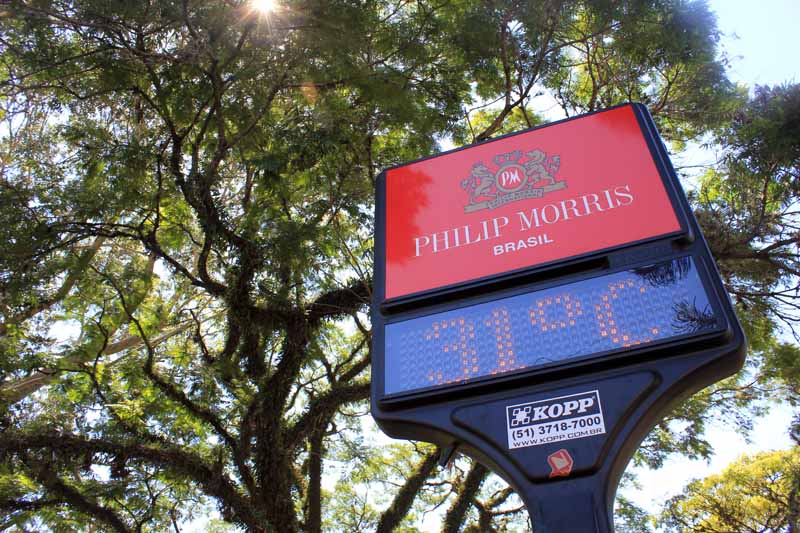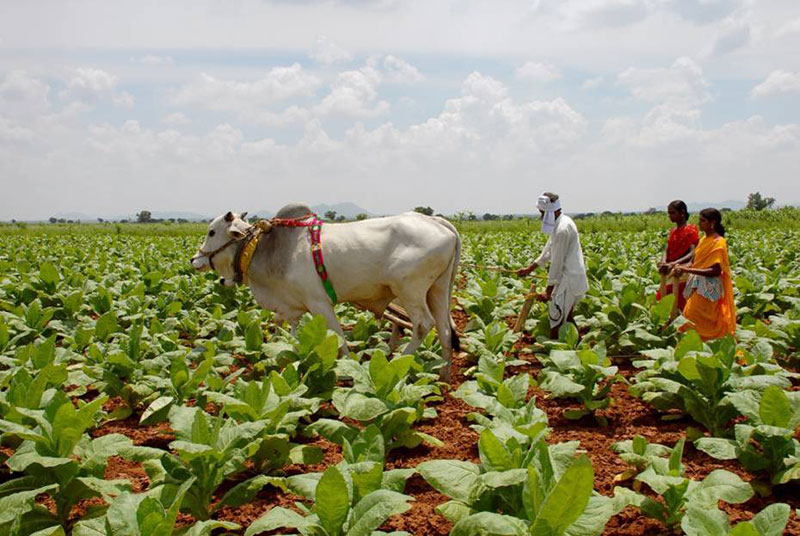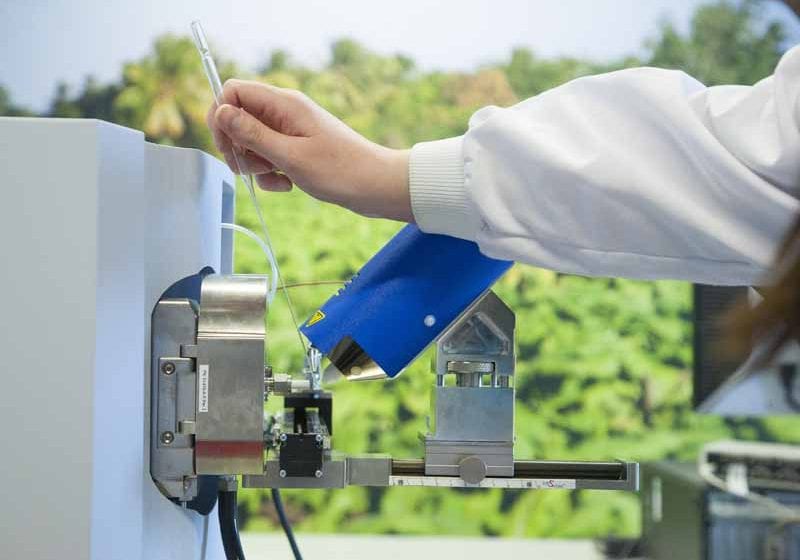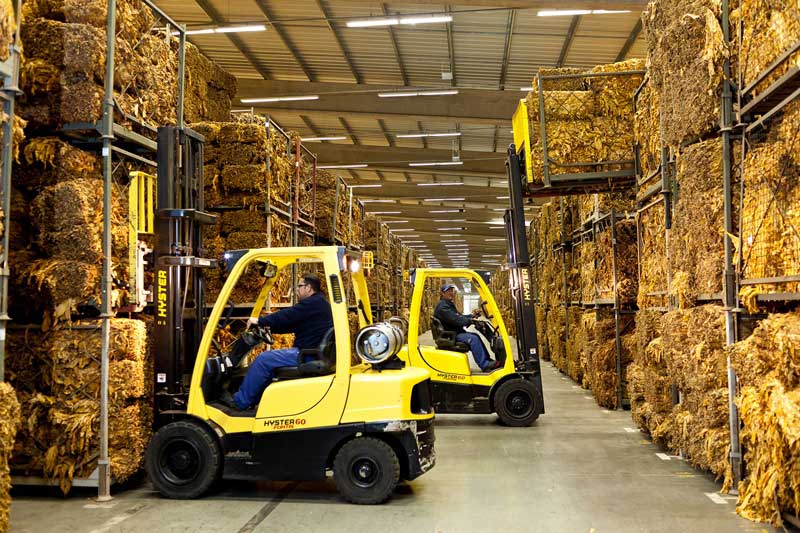Updated estimations from the World Health Organization suggest that seven million deaths a year are caused by people breathing ambient (outdoor) and household air pollution.
According to a WHO press note, new data shows that air pollution levels remain dangerously high in many parts of the world; so that nine out of 10 people breathe air containing high levels of pollutants.
“Air pollution threatens us all, but the poorest and most marginalized people bear the brunt of the burden,” says Dr. Tedros Adhanom Ghebreyesus, Director-General of WHO.
“It is unacceptable that over three billion people – most of them women and children – are still breathing deadly smoke every day from using polluting stoves and fuels in their homes. If we don’t take urgent action on air pollution, we will never come close to achieving sustainable development.”
WHO estimates that about seven million people die every year from exposure to fine particles in polluted air that penetrate deep into the lungs and cardiovascular system, causing diseases including stroke, heart disease, lung cancer, chronic obstructive pulmonary diseases and respiratory infections, including pneumonia.
WHO recognizes that air pollution is a critical risk factor for noncommunicable diseases, causing an estimated 24 percent of all adult deaths from heart disease, 25 percent from stroke, 43 percent from chronic obstructive pulmonary disease and 29 percent from lung cancer.
The press note is at: http://www.who.int/news-room/detail/02-05-2018-9-out-of-10-people-worldwide-breathe-polluted-air-but-more-countries-are-taking-action.
Category: Sustainability

Seven million deaths

Cry for action on child labor
The global watchdog, Human Rights Watch (HRW), has urged Zimbabwe to take urgent steps to stem child labor and other rights abuses on the country’s tobacco farms, according to a story in The Business Daily.
In a report entitled, Bitter Harvest: Child Labor and Human Rights Abuses on Tobacco Farms in Zimbabwe, the HRW revealed that children as young as 11 were working on tobacco farms, often in hazardous conditions, to earn school fees or supplement family incomes.
Workers were said to be exposed to nicotine and toxic pesticides, and to suffer symptoms consistent with poisoning, such as nausea and vomiting.
“Zimbabwe’s government needs to take urgent steps to protect tobacco workers,” said Margaret Wurth, co-author of the report.
The Business Day reported seasonal workers on some large-scale farms as saying they were pushed to work excessive hours without overtime and forced to go weeks or months without pay.
HRW called on the government to investigate and monitor child labor and human rights violations on tobacco farms.
President Emmerson Mnangagwa has promised to prioritize agriculture as he looks to revive Zimbabwe’s moribund economy.
The HRW report is at: https://www.hrw.org/report/2018/04/05/bitter-harvest/child-labor-and-human-rights-abuses-tobacco-farms-zimbabwe
Butts into compost
The South Korean city of Guri has developed a machine that transforms cigarette butts into compost, according to a story in The Korea Bizwire.
The technology is being tested in the grounds of government offices, where the machine is housed inside a smoking booth.
According to the story, the process uses microorganisms harmless to humans to create usable compost out of the butts – compost that has the added advantage of repelling pests.
The authorities in Guri have indicated they will place cigarette-butt composting-machines around the city after they have concluded the initial trial and conducted an overview of the results.
Sustainable water use
Philip Morris International said yesterday that its major factory in Santa Cruz do Sul, Brazil’s main tobacco-growing area, was the first factory in the country to be certified by the Alliance for Water Stewardship (AWS).
‘Based on the AWS international standard for sustainable water use, the certification recognizes PMI for its leadership within its manufacturing operations and for being mindful of the local watershed and community needs surrounding the site,’ PMI said in a note posted on its website. ‘Building on the success of this initiative for AWS implementation in Brazil, PMI is committing to certify at least 10 more facilities by 2020, and all of its operations worldwide – 46 facilities – by 2030.’
“As we progress towards our vision of a smoke-free future, we know that reducing our environmental impact to sustainably manage the planet’s limited resources is also key to our long-term growth,” said Massimo Andolina, senior vice president of operations at PMI. “Water is precious, and we are committed to using it responsibly wherever we operate. We look forward to building on this success in Brazil to extend our efforts globally and hope this commitment will inspire other companies in our value chain and beyond to take similar steps on water stewardship.”
Meanwhile, Alejandro Okroglic, director of operations for PMI’s local affiliate, PM Brazil, said implementing the AWS standard had allowed the company to improve its understanding of what sustainable water use really meant. “Our AWS team and our 1,600 employees are fully engaged to ensure that our factory meets the AWS standard, including engaging with local authorities, the farming community and civil society groups,” he said.
Declarations made
The World Conference on Tobacco or Health (WCTH) has called upon governments to develop plans by 2021 for phasing out the sale of tobacco products.
In a statement, the WCTH, which held its 17th conference in Cape Town, South Africa, on March 7-9, also made 10 declarations.
In a preamble to the declarations, the WCTH said the tobacco epidemic represented one of the biggest public health threats the world had ever faced.
‘Tobacco use kills more than seven million people each year, and the vast majority of these deaths take place in low- and middle-income countries.
‘The global economic cost of smoking amounts to nearly two trillion dollars and two percent of the worlds GDP in 2016.
‘Tobacco use also undermines sustainable development, imposing a huge burden on the global economy, exacerbating poverty, contributing to food insecurity, and harming the environment.
‘There is an irreconcilable conflict between the manufacture and marketing of tobacco products and the right to health.
‘The tobacco industry is a driver of poverty and linked to child labor, violation of workers’ rights, food insecurity and exploitation of farmers. African governments need to take concrete and urgent action to implement alternative livelihoods that are the rich sources of income free from tobacco.
‘Ending the scourge of tobacco and achieving the SDGs [sustainable development goals] will require urgent action.
‘Therefore the 17th World Conference on Tobacco or Health affirms the following:- We call on governments to unite with civil society to stop tobacco industry interference and accelerate implementation of the WHO FCTC [World Health Organization Framework Convention on Tobacco Control] using a whole-of-government approach.
- We urge governments, scientists, research entities, foundations, and civil-society organizations to reject or cease engagement with the Philip Morris International-funded Foundation for a Smokefree World and other initiatives of the tobacco industry
- We adopt the Cape Town Declaration on Human Rights and a Tobacco-free World (https://unfairtobacco.org/wp-content/uploads/2018/03/Cape-Town-Declaration_Human-Rights_Tobacco-free-World-1.pdf).
- We call on African governments to operationalize the Addis Ababa Action Agenda on financing for development that recommends increasing tobacco taxes as an untapped, sustainable domestic resource mobilization strategy, for accelerating the implementation of the WHO FCTC in Africa.
- We call on Parties to actively engage in the development of the WHO FCTC Medium Term Strategic Framework and Plan and to endorse them at the forthcoming eighth session of the Conference of the Parties of the WHO FCTC.
- We support the concept of a tobacco-free generation and commit to empowering youth involvement and advocacy as a means to achieving a tobacco-free world (http://wctoh.org/news/youth-pre-conference-delegates-unite-to-build-a-tobacco-free-generation/).
- We call on Finance Ministers to actively support the WCTOH 2018 Declarations by prioritizing sustainable funding for tobacco control and ceasing public and private investment in the tobacco industry.
- We call on governments to extend as a priority, fiscal policies to continually decrease the affordability and accessibility of tobacco products
- We call on the Parties to the WHO FCTC to integrate gender-based data-collection and reporting into Party reports to the Conference of the Parties [COP] on their implementation of the WHO FCTC by COP9.
- We call upon the International Labour Organisation (ILO) to align with the decision of the UN Economic and Social Council (ECOSOC) and end its collaboration with the tobacco industry immediately.’

Tree levy opposed
Zimbabwe’s Federation of Farmers Union chairman Charles Chabikwa has said that tobacco farmers are threatening to boycott a reforestation levy ahead of the opening of the 2018 marketing season, according to a Newsday Zimbabwe story relayed by the TMA.
From January 2015, the government introduced a levy on all tobacco sales at a rate of 1.5 percent in the first year and 0.75 percent in subsequent years as part of a sustainability initiative aimed at funding the planting of trees to replace those burned as fuel in curing tobacco.
“The levy has been in effect for three years, with close to US$20 million collected from farmers and not a single tree seedling has been planted or sustainable tobacco curing projects embarked on,” said Zimbabwe Tobacco Association chief executive, Rodney Ambrose.
“It is our view that the levy should be removed effective this 2018 season and the funds accumulated to date first accounted for and utilised by farmer stakeholders.”
The Tobacco Industry Marketing board said of the US$19 million collected since 2015, US$4 million was in the board’s account.
Sustainable plans
Zimbabwe’s tobacco industry is intensifying its reforestation program by developing woodlots of fast growing trees, according to a story in The Herald quoting the public relations manager of the Tobacco Industry and Marketing Board (TIMB), Isheunesu Moyo.
The revitalized interest in reforestation has come about because, under the Sustainable Tobacco Program, from 2020, global cigarette companies will not buy leaf tobacco produced in an unsustainable manner, which includes tobacco cured using coal.
Zimbabwean tobacco growers, particularly small-scale producers, traditionally use wood to cure tobacco. But as a result of wood poaching and massive deforestation in most farming communities, there had been a campaign to encourage farmers to use coal as an alternative source of energy.
“Confronted with this situation, it is imperative for the tobacco industry in Zimbabwe to adopt aggressive afforestation programs in order to remain competitive and relevant to the global cigarette industry,” said Moyo.
“TIMB has mobilized $2 million from its own resources for planting of trees for curing tobacco. From this resource envelope, the industry is targeting about 2,000 ha.”
The Herald reported that Zimbabwe had introduced an afforestation levy to fund the planting of woodlots, a levy that had raised more than $3 million since 2015.
However, the TIMB said it had not used these funds because it had not obtained approval to do so from the government.
“We haven’t started utilizing the afforestation fund as we await administrative processes so that we can scale up our activities and plant at least 20,000 ha of woodlots per year for the next five years,” said Moyo.
“This will be enough to cure an average 100,000 ha of tobacco, which we produce per year, and that will enable us to meet the requirements of the global tobacco cigarette companies.”
Looking to quit
Some flue-cured tobacco growers in the Prakasam district of Andhra Pradesh, India, are willing to quit the crop if the union government will compensate them to the tune of Rs1,000,000 per barn, according to a story on The Hindu Online.
Having suffered four consecutive years of drought, some of the growers operating in the traditional Southern Black Soil (SBS) and Southern Light Soil (SLS) areas of Prakasam are keen to quit flue-cured tobacco growing if the government provides compensation for dismantling the barns permanently.
The SBS and SLS areas account for 50 percent of the tobacco grown in Andhra Pradesh.
YSR Congress Party’s chief whip in Parliament, Y.V. Subba Reddy, is due to lead a delegation of farmer leaders to New Delhi to press for a suitable financial package to be included in the Union Budget.
The proposal is being presented as being in line with the strategy of reducing tobacco production laid out by the World Health Organization’s Framework Convention on Tobacco Control.
And it is being seen as almost inevitable as drought-hit growers have been forced already to cut down tobacco curing per barn by about 20 percent and fear that further reductions could render cultivation and processing unviable.
Any tobacco reduction strategy that did not include a reduction in the number of barns would be a futile exercise, the growers say.
The Hindu story said the clamor for quitting tobacco growing had gathered steam since 2015 when the sector saw a spate of suicides among growers, forcing the-then Union Commerce Minister, Nirmala Sitharaman, to visit the area and help growers by offering compensation of Rs20 per kg for low-grade tobacco that had no takers on the regular market.
Still working with farmers
British American Tobacco says that its commitment to working to enable prosperous livelihoods for all farmers who supply its leaf tobacco is the focus of its latest report: Sustainable Agriculture and Farmer Livelihoods.
‘This new report provides an overview of how BAT invests over £60 million each year in advancing sustainable agriculture, through its global leaf research and development, and supporting farmers through a network of expert field technicians,’ BAT said in a note posted on its website today.
‘It also shows how the group is managing and monitoring supply chain risks and opportunities through global programs; and how it is working in multi-stakeholder partnerships, including the Eliminating Child Labour in Tobacco Growing (ECLT) Foundation, to solve complex problems and long-term issues in farming communities.’
Chief executive Nicandro Durante was quoted as saying that BAT had been working in partnership with tobacco farmers for more than a century. “Over that time, we’ve evolved our approach to take advantage of new opportunities, focused on creating value for the future of our business and the farmers we work with,” he said.
“We understand that there are many challenges facing agriculture and rural communities, so our work also includes multi-stakeholder projects that aim to enhance livelihoods, protect human rights and lessen the environmental impacts of agriculture.”
The press note then went on to say that leaf tobacco remained at the core of BAT’s products, so the farmers who grew it were at the heart of its supply chain.
‘British American Tobacco sources tobacco leaf from 350,000+ farmers in 34 countries, which includes 90,000+ directly contracted by BAT leaf operations and 260,000+ contracted by our third-party suppliers,’ the press note said.
‘This report provides an in-depth look at how BAT is implementing its sustainable agriculture objectives to ensure the continued success and long-term security of our business and, crucially, to fulfilling our role in wider society to support farmers and their communities, now and in the future.’
The press note said that highlights of the report included:
- ‘A viewpoint from Alan Davy, BAT’s group operations director, in which he responds to challenging questions and explains why supporting sustainable agriculture remains such a priority.
- ‘An independent stakeholder viewpoint from Professor Dr. Heiko Hosomi Spitzeck, director of the Center for Sustainability at Fundação Dom Cabral, Brazil, which has been recognised as the best business school in Latin America for 11 consecutive years by the Financial Times.
- ‘Information on BAT’s Global Leaf R&D which develops improved seed varieties to increase farmers’ yields by up to 20 percent, as well as new and innovative sustainable farming technologies, such as drip irrigation which increases water efficiency by up to 90 percent.
- ‘Details of BAT’s global Thrive program which takes a holistic and collaborative approach to identifying and addressing long-term challenges that have an impact on the livelihoods of farming communities and the sustainability of agriculture.
- ‘Since 2011, through the work of the industry’s ECLT Foundation, 162,000 children have been removed or kept away from child labour and 455,000 community members have been reached through awareness-raising activities.
- ‘The company’s Florece child labour prevention program in Mexico, in partnership with the government and other local stakeholders, which has helped 14,400 children since 2001.
- ‘100 years of supporting farmers in Brazil and UN recognition for the company’s program to inspire a new generation of Brazilian farmers.
- ‘75,000 beneficiaries in 19,000 rural families who have been empowered through the Sustainable Agriculture Development Programme in Sri Lanka.
- ’75 million trees planted through a long-standing afforestation program in Pakistan, and 78,000 Pakistanis in rural communities treated for free each year by Mobile Doctor Units.
- ‘The results of an independent impact measurement study of the company’s community programs in Bangladesh, which found that its water filtration units have reduced the number of people suffering from waterborne diseases, from 32 percent down to 0.3 percent.’
The report is at: www.bat.com/sustainabilityfocus.

AOI sales increased
The value of Alliance One International’s sales during its second quarter to the end of September, at US$447.3 million, was increased by 14.9 percent on that of the second quarter to the end of September 2016.
The increase was said to have been due primarily to the production of a larger South American crop and a 12.4 percent increase in average sales price due to favorable product mix.
At the same time, gross profit increased by 37.9 percent to US$69.3 million and gross profit as a percentage of sales improved to 15.5 percent from 12.9 percent last year.
Net income was US$1.0 million and adjusted EBITDA improved 40.5 percent to US$49.9 million.
In announcing the company’s results for the second quarter and first six months, president and CEO Pieter Sikkel said that AOI had achieved solid sales growth during the second quarter, and that volume was increasing as crop sizes had returned to more normal levels in many key markets.
Sales were planned to improve throughout the fiscal year, with each subsequent quarter building on the prior, based on the timing of crops and processing in the growing regions.
“Through the first half of this year total kilos sold increased 2.1 percent to 153.2 million kilos and sales increased 11.3 percent to $724.3 million this year versus last year as a result of the larger South American crop, increased customer demand primarily from Asia and Europe, and a 9.5 percent increase in average sales price due to favorable product mix,” said Sikkel.
“Lamina as a percentage of total sales was 14.2 percent higher when compared to last year. Additionally, the 2017 Brazilian crop now being sold is of higher quality than the El Niño-affected 2016 crop.
“Gross profit increased by 16.2 percent to $98.0 million for the first six months of this year and gross profit as a percentage of sales improved to 13.5 percent from 13.0 percent last year.
“These improvements were driven by sales that increased by 11.3 percent while total costs of goods and services sold only increased 10.6 percent.”
Sikkel said that the company was implementing initiatives that should grow its business platform, while continuing to enhance its sustainability and track-and-trace capabilities.
In addition, the company had recently made a further investment to expand its e-liquid capability and footprint established initially with its investment in Purilum, a leader in e-liquids and flavoring. Purilum had won the 2017 Golden Leaf Award for the company most committed to quality, affirming AOI’s commitment to high quality next generation products and their future.
“Future prospects for our business are bright and we are excited about developing and maximizing future opportunities that should drive improved profitability and enhanced shareholder value,” Sikkel said.
“We are taking measured steps to strengthen our preferred supplier role with customers, further developing our position as a key supplier for both traditional requirements as well as next generation reduced risk products.”


